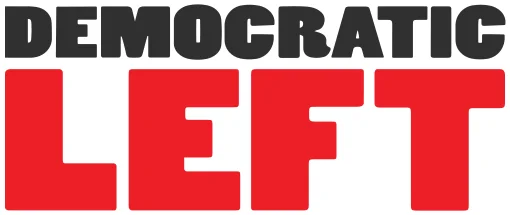

Chapters Prepare for a Busy Election Season in 2026
February Chapter and Verse: Where DSA is growing, new organizing committees, and more chapter news.
The post Chapters Prepare for a Busy Election Season in 2026 appeared first on Democratic Left.
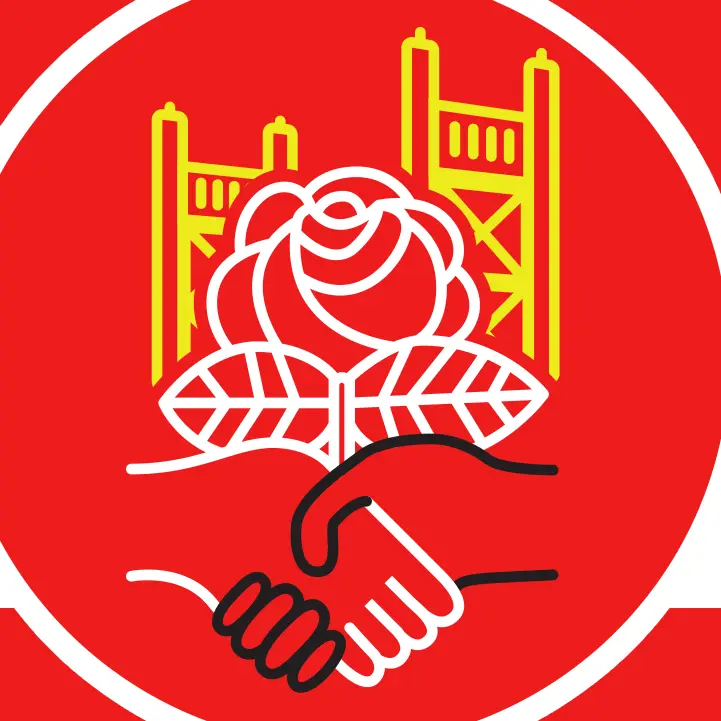

Chevron’s Global Operations and the Case for Corporate Accountability
By Dylan
The fundamental case for corporate accountability rests on the principle that significant power—whether political or economic—must be subject to ethical scrutiny. In a globalized economy, the actions of large-scale enterprises have profound consequences for the communities and environments in which they operate. Consider the devastating impact that corporations like Union Carbide, Nestlé, Monsanto, and Halliburton have had on the environment and human lives.1 When a corporation’s pursuit of profit intersects with regions marked by conflict, repressive governance, economic injustice, or social inequality, the company ceases to be a neutral bystander and instead becomes an active participant in the local landscape. If an organization benefits from or reinforces systems that result in human suffering or environmental harm, it incurs a moral responsibility that transcends simple legal compliance. Therefore, corporate accountability is not merely a regulatory preference but a necessary safeguard to ensure that private interests do not supersede human rights and dignity. In the absence of a unified global authority to govern these interactions, public awareness and ethical pressure serve as essential tools for aligning corporate behavior with the broader interests of humanity.
One of the most troubling, contemporary, examples of a lack of corporate accountability involves the Chevron Corporation. While its economic power and technological capacity are often framed as engines of development, Chevron’s operations in Israel and Venezuela reveal a more troubling dimension of corporate involvement in human rights abuses. In both cases, Chevron’s activities raise serious concerns regarding complicity, accountability, and the exploitation of people in politically volatile environments by non-state actors.
In Israel, Chevron’s involvement in the Tamar and Leviathan offshore natural gas fields has positioned the company as a critical contributor to the country’s energy infrastructure.2 These gas fields supply a substantial portion of Israel’s electricity, thereby reinforcing the operational capacity of the Israeli state. While energy development is frequently presented as politically neutral, such claims become untenable when corporate profits are closely intertwined with prolonged military occupation and structural inequality. Revenues generated from Chevron-operated gas fields flow directly into the Israeli economy and, by extension, support state institutions that administer and enforce policies in the occupied Palestinian territories. As a result, Chevron’s presence cannot be separated from the broader political context in which systematic restrictions on Palestinian movement, economic activity, and self-determination persist.
Furthermore, Chevron’s stake in regional energy infrastructure, including gas pipelines operating in the eastern Mediterranean, intersects with security policies that have restricted Gazan’s maritime access. According to Investor Advocates for Social Justice:
- “The Company holds a partial stake in the East Mediterranean Gas pipeline, which transports gas from Israel to Egypt along the coast of the Gaza Strip. Under international law, including the Hague Regulations and Geneva Conventions, economic activity in occupied territory without the agreement of the affected population is considered unlawful and may constitute “pillage,” a war crime. The pipeline is also closely linked to Israel’s longstanding naval blockade of Gaza, which restricts Palestinian maritime access and has had a devastating impact on the region’s economy since 2009.”3
Although Chevron does not directly administer these policies, its operations benefit from and reinforce a system sustained through coercive state power. In this respect, Chevron exemplifies how corporations become embedded within structures of control and repression while maintaining formal distance from their consequences.
Chevron’s role in Venezuela also raises concerns about corporate ethics and humanitarian responsibility. The oil giant continues to operate in Venezuela even as the United States government has sanctioned the Caribbean nation’s economy. According to a report last year by EuroNews,
- “Chevron’s operations are structured so that cash flows and profits do not directly benefit PDVSA (Venezuela’s state-owned oil and gas company) or the Venezuelan state under current sanctions licences….The Venezuelan government does not receive fresh revenue from these operations — no dividends, no budget income, no direct cash transfers….US officials argue that Chevron’s continued presence actually strengthens sanctions enforcement rather than undermining it.”4
Basically, Chevron functions as the sanctions arm of the US government by not having to pay taxes or royalties to the Venezuelan government. Add in that Venezuela must sell its oil abroad for debt relief and it becomes clear that the country and its people are being exploited by state and non-state actors.5
This means that Chevron’s ongoing oil production in Venezuela has not translated into meaningful improvements in living conditions for Venezuelans experiencing shortages of food, medicine, and basic services due to U.S. sanctions. As two economists at the Center for Economic and Policy Research noted:
- “It is important to emphasize that nearly all of the foreign exchange that is needed to import medicine, food, medical equipment, spare parts and equipment needed for electricity generation, water systems, or transportation, is received by the Venezuelan economy through the government’s revenue from the export of oil. Thus, any sanctions that reduce export earnings, and therefore government revenue, thereby reduce the imports of these essential and, in many cases, life-saving goods.”6
Chevron has also faced numerous allegations of failing to comply with mandated cleanups, leading everyday, working-class people to bear the social and economic costs.7 Their privileged status highlights a recurring pattern in global energy politics: corporations maintain access to strategic resources while civilian populations suffer.
With the Trump administration’s recent coup against Venezuela’s government, Chevron stands first in line to profit from Trump’s oil grab as the only U.S. company currently operating in Venezuela.8 This has ramifications for Americans as well. If Venezuelan oil production is increased, it is likely that more Venezuelan heavy crude oil would be imported by U.S. Gulf Coast refineries, largely located where Black, Latino, Indigenous, and low-income communities are already exposed to fossil fuel pollution.9,10
Boycotting Chevron should therefore be understood not as an isolated consumer choice, but as part of a broader effort to impose ethical constraints on corporate behavior within the international system. Historically, boycotts have functioned as tools to expose moral contradictions, mobilize public awareness, and pressure powerful institutions resistant to reform. Consider the progressive, humanitarian, impacts of the Montgomery bus boycott or international divestment from South Africa’s apartheid regime.11 In the absence of effective international regulation of corporations, public accountability becomes one of the few remaining mechanisms for challenging corporate complicity in systemic injustice.
Ultimately, Chevron’s involvement in Israel and Venezuela illustrates a wider failure to reconcile profit-driven enterprise with ethical responsibility. A boycott, while limited in scope, signals a refusal to normalize corporate practices that benefit from occupation, repression, inequality, and human suffering. In doing so, it affirms the principle that economic—like political—power, must be subject to moral scrutiny.
Footnotes:
-
AFSC: Chevron Fuels Israeli Apartheid and War Crimes Additionally
-
Investor Advocates for Social Justice: Proposed Human Rights Policy Implementation
-
EuroNews: Why Chevron still operates in Venezuela despite US sanctions
-
Venezuelanalysis: Chevron Back in Venezuela, A Tale of US Imperialist Arrogance
-
CEPR: Economics Sanctions as Collective Punishment: The Case of Venezuela
-
AmazonWatch: Chevron’s Global Record of Denial and Destruction
-
USPCR: From Palestine to Venezuela, Chevron Profits From U.S. Imperialism
-
S&P Global: US Gulf Coast refiners seen benefiting from increased use of heavy Venezuelan crude
-
PBS/NPR: Oil refineries release lots of water pollution near communities of color, data show
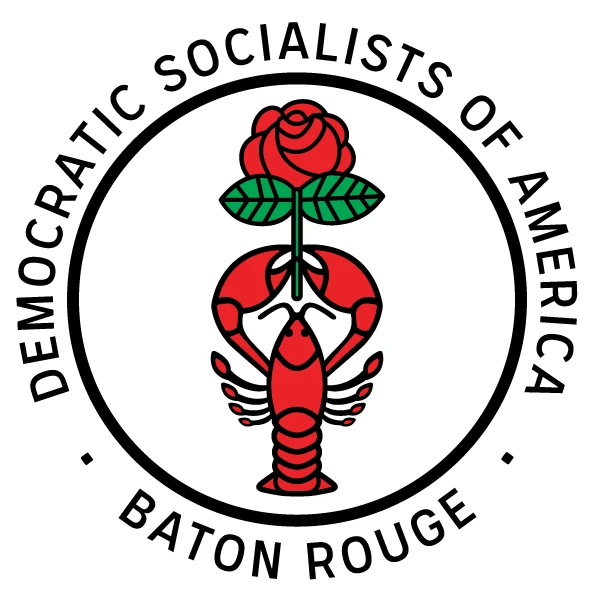

Stop The Siege
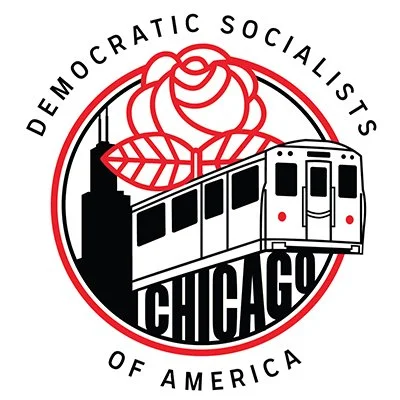

The Revolution Keeps Me Beautiful: A Report-Back of the DSA Cuba Delegation
At the end of January, I had the pleasure of speaking at the Chicago Cuba Coalition’s event titled “War in the Americas, Cuba, Colombia, Immigrants in the Crosshairs, What’s Next? What Can We Do?” During this event, I spoke about my experience on the DSA Cuba delegation. This event took place days after Trump’s new executive order, which seeks to further limit fuel going into Cuba. Trump’s executive order on Cuba, paired with the toppling of Venezuelan president Nicholas Maduro, exacerbates the humanitarian crises unfolding in Latin America. My goal was to capture the beauty and resilience of the Cuban people despite every attempt to cut them down. I hope to carry that spirit of revolutionary struggle – which is still alive and well in Cuba today – into our local work, which takes place within the belly of the imperialist beast that is the United States of America.
***
Transcript of speech by Lyra Spencer, delivered January 31, 2026 at Chicago Teachers Union Headquarters. Text edited for clarity.
Good afternoon, everyone. My name is Lyra Spencer, and I am one of the two co-chairs of Chicago DSA. It is such a privilege and an honor to share the stage with such scholars, experts, and fighters who have been working to end the blockade for many years.
I come to bring my experience and perspective as someone who had the privilege to travel to the island in October along with my DSA comrades in solidarity with Cuba. Thank you for giving me this space to share my experience. Cuba, interestingly enough, was my first trip abroad. It was a life changing experience for many reasons.
I want to start by foregrounding the humanitarian crises unfolding in Cuba inflicted upon that nation by the United States. While I was there in October, Cuba was really struggling. Older buildings in Havana’s city center were crumbling and trash started piling up in places due to the lack of fuel for trash collection. There was actually a moment when we were passing a field on our bus where two 12-year-old boys carrying a trash can emptied it into a nearby lot. The hospitals are in desperate need of supplies, and they experience frequent power outages.
Cuba is facing a currency crisis. The Cuban peso has taken such a hit that many of the smaller peso units of currency are worthless now. Cuba, despite its robust public healthcare program, has a shortage of doctors now because the median wage is paid in pesos at $25 dollars per month. Cuban residents can find much more lucrative wages working in tourism, where currency and tips are often exchanged in U.S. dollars. A restaurant server often makes far more money than doctors.
A local Cuban journalist described the situation, stating that there used to be a baseline in Cuba where everyone had their basic needs met. No one was particularly wealthy, but no one was forced to live in extreme poverty either. However, because of the blockade, many of Cuba’s residents are falling into a type of destitution that few have experienced before. All of this was prior to the illegal kidnapping of Nicholas Maduro in Venezuela, and before the executive order on Cuba.
I can only imagine how hard things must be for the people of Cuba now. I wanted to ground us in this place upfront to acknowledge the rough spot that Cuba is in as a result of U.S. imperialism. The reason why I chose to foreground this is because I do not believe that the full story is one of sadness and sorrow, but one of beauty, resilience, and liberation.
***


The most shocking thing about Cuba wasn’t the problems that ail its society today. For me as an American, it was seeing a society centered around the wellbeing of humans and not the maximization of shareholder value.
While in Cuba, we visited three main places that I want to highlight. The first being one of the main hospitals in Cuba, where we learned from some of the top doctors about the Cuban healthcare system. In Cuba, everyone has access to free healthcare, and it is considered a fundamental right. Healthcare was one of the main tenants of the Cuban revolution, and Fidel Castro demanded equal access to healthcare for all Cubans as a part of his two-hour denunciation of the Batista regime following his arrest for his involvement in the failed attack on the Moncada Barracks in Santiago de Cuba on the 26th of July, 1953.
Immediately after the revolution, doctors were sent to every corner of Cuba which had been previously neglected to survey the population and find out the needs of the public. They immediately set up a primary care system and started treating the most common ailments of the day. Cuba has historically had lower infant mortality rates than the United States, as well as a similar life expectancy and more equal health outcomes along race and income lines. The people of Cuba enjoy far better access to primary care, with doctors and nursing teams located at the neighborhood level, and residents having access to frequent preventative screenings. Even with Cuba’s current doctor shortage, they still have a higher doctor-to-population ratio than the U.S.
Not only does Cuba provide excellent healthcare for its citizens, it also exports its doctors around the world to help other Global South countries in need. The only limitation to the Cuban healthcare system are the restrictions placed upon it by the U.S. embargo. It is ironic, despite its immense wealth, that the U.S. government is doing everything in its power to remove access to healthcare for millions of Americans. Despite the hardships imposed on them by the blockade, the people of Cuba are doing everything it can to keep quality care and expand it to other countries in need.


During the trip to this hospital, I noticed something that I rarely see here in Chicago: Black doctors in prominent leadership positions within Cuba. In fact, Cuban society was fairly integrated, at least in Havana. Not only doctors, but professors, museum curators, lawyers, and countless other professions had their fair share of Afro-Cubans working together in Cuban civil society.
This was one of the first stark differences I noticed, as a Black woman residing in a northern neighborhood in Chicago. Back home, I could go days without seeing someone who looks like me, despite Chicago being 30% Black. Furthermore, professions are often unofficially segregated by race in the U.S., just as the neighborhoods in Chicago are. On our way out of the hospital, one of the doctors revealed that she was in her seventies, which was a shock to all of us. On the trip someone asked how she manages to look so youthful, she replied, “The revolution keeps me beautiful.”
***
The second place I want to talk about is the Latin America School of Medicine in Havana. There, we learned that Cuba sends doctors to other Global South countries around the world as a humanitarian service to the poor. The country takes in students, houses them, and trains them to return to practice medicine in their own countries free of charge. The head instructor told us that they share what they have with the community, including educational instruction, supplies, and temporary housing. But in exchange they also share some of Cuba’s problems, such as blackouts and limited access to food. The head instructor told us that recently fresh water hadn’t been available at the school for twenty days, and the students operated to distribute water pipes sent to them in equitable ways. In some communities in Latin America, over 70% of the doctors came from the Latin American School of Medicine. I also found it interesting that this school has also trained doctors from poor communities within the U.S., having hosted over 244 U.S.-American students since the academy’s founding. Eight U.S. students will be graduating this year.


The last place I want to cover is Cenesex. Cenesex is the Cuban National Center for Sex Education. It handles most of the country’s sex education, along with advocacy and essential services for queer people. The organization works to educate the population on all things related to queer and trans people, domestic violence, and sexual abuse.
Cenesex was one of the main institutions responsible for the update to the family code that was passed through a nationwide referendum in 2022. It legalized same-sex marriage and adoption and recognized non-traditional family structures outside of the nuclear family, focusing on the rights and wellbeing of children over parental authority, mandating equal sharing of domestic responsibilities and gender equality, banning corporal punishment for children, and setting the minimum age for marriage in the country to eighteen. Cenesex was one of the main drivers of the advocacy campaign in favor of the new code, hosting public input and educational forums all across the country. It also helps trans individuals navigate transitioning, preparing them for surgeries, offering them and their families counseling, and connecting them to much-needed resources.

One moment that was the cornerstone of this trip was leaving Cenesex. There were three trans people on this trip, and we all cried after the visit. It was truly shocking to see a government institution actively care about our wellbeing instead of trying to erase our identity, call us “groomers,” and eradicate us from existence. We are told by our government that Cuba is a danger to the United States, yet each and every one of us trans women on this trip felt far safer in Havana than we did crossing through the Miami airport to get there.
***
The reality of Cuba that I experienced is one of resilience. Despite our government’s best efforts, Cuba has created a society that centers around the wellbeing of its population. While I was there, I saw very little military and police. I saw integration. I saw a government and people trying as hard as they could to get by in spite of the situation. Like any government, it makes mistakes. However, the central point of Cuba’s state planning is to center human wellbeing.
The only danger that Cuba presents to the United States is the danger of U.S. citizens seeing what a government with a fraction of our country’s resources can do to take care of its people and its struggling neighbors. That is why our imperialist government is fighting so hard to finish the job of its predecessors and destroy the revolution once and for all.
I left Cuba with a renewed sense of responsibility. The only people that have the power to stop what our government is doing is us. We must carry the strength, beauty, and resilience of the Cuban people in our struggles against this fascist Trump regime. We must stand united in the belly of the beast.
Thank you.

The post The Revolution Keeps Me Beautiful: A Report-Back of the DSA Cuba Delegation appeared first on Midwest Socialist.


GMDSA’s Socialist Voter Guide for Town Meeting Day 2026
It is that time of year again, time for Vermont’s annual Town Meting Day tradition.
The last two years have seen schools and school budgets become the focus on local as well as state politics. As in every year, Green Mountain DSA (GMDSA) recommends voting yes on your local school budget.
GMDSA only chose to endorse one candidate for a local race this year, but there are elections in every town, city and village, some of which are more exciting than others. The rest of this voter guide will be a town-by-town breakdown of local races in areas where there is an active GMDSA presence, of both elections and ballot questions.
Burlington
Green Mountain DSA has only endorsed one candidate this TMD, being Marek Broderick, for re-election to the city council in Ward 8. Before first being elected in 2024, Marek was co-chair and an organizer with the UVM chapter of the Young Democratic Socialists of America, DSA’s youth section. As a councilor, Marek has fought for tenants’ rights on and off campus, including notably organizing with UVM's Student Tenant Union to win unanimous support for a resolution holding UVM accountable for poor housing conditions. Marek was unanimously endorsed for re-election by the chapter because the fight is not over. If Marek wins on March 3, he will continue to fight for housing for all, tenant rights, and a city that everyone can call home.
However, Marek’s advocacy for renters, students and the broader working class has not made him any friends within Burlington’s establishment. This year, the Democrat Party chose to nominate only one candidate to run against an incumbent: the landlord Ryan Nick, scion of commercial real estate tycoon Jeff Nick, is running to unseat Marek.
Nick has been able to raise considerable cash through his connections to the city’s monied interests, mostly from other landlords and real estate moguls. This is fitting, as Nick has made a name for himself as a vocal opponent of essential harm reduction services like the Howard Center’s needle exchange, and an opponent of mutual aid groups like Food Not Cops. Ryan himself works for his father’s real estate company, JL Davis Realty, on “tenant relations,” according to his CCTV candidate forum. Between his status as one of Burlington’s landlords and his antagonism of community groups, Green Mountain DSA believes that Nick cannot be trusted to hold police accountable and exactly represents the elites’ status quo that is crushing us workers.
If you live in Ward 8, please vote to re-elect Marek Broderick!
Green Mountain DSA recommends voting for all other Progressive candidates, including in Ward 7, where Bill Standen is running to unseat Democrat Even Litwin. Green Mountain DSA also recommends voting yes on question three, which would enshrine the city’s Racial Equity, Inclusion and Belonging Office in the city charter.
Lastly, the coalition that put Proposition 0 on the ballot in 2023 is at it again, aiming to get the direct democracy charter change on the ballot again in time for the November midterms. We recommend signing the petition to get Proposition 0 on the ballot.
Winooski
In Winooski, there are no contested races for city council or the mayor. Green Mountain DSA offers no recommendations for this election, other than a yes vote for both the city and school budgets, particularly article six which would allow the school to purchase a nearby home to the school with surplus funds. The property will be used by the school for specialized educational settings for students who need it. Currently, the school system does not have something like this and students who need a specialized education setting are required to travel out of district. We would also like to note that an added benefit of this purchase is removing a known Zionist's pro Israel propaganda from the property being purchased.
GMDSA also recommends Katie Livermore, who is running for re-election to the School Board. Many Winooski GMDSAers know her from her work on the Winooski AFC campaign which passed last year with over 70% approval. Katie played an integral role in that campaign and continues to organize in her community both in the school and outside.
South Burlington
Unlike Burlington, and like Winooski and the rest of Vermont municipalities, South Burlington elections are officially non-partisan. However, this does not stop them from being competitive. For the two-year seat this year, the two candidates running are Amy Allen and Beth Zigmund. Allen seems to be a typical pro-business, establishment candidate, while Zigmund is running with the support of progressive non-profits like Run on Climate (which also endorsed Marek Broderick). Green Mountain DSA offers no recommendation in this race, but leans toward favoring Zigmund.
Montpelier
Montpelier residents will again vote on the Apartheid-Free Communities (AFC) pledge, after it was voted down last year. The pledge, which passed last year in Winooski and various other towns across Vermont, condemns Israel’s system of Apartheid, settler colonialism and occupation, and commits the signer to fighting for liberation in Palestine. Green Mountain DSA endorses AFC, and urges Montpelier residents to vote yes.
Waterbury
On Waterburry’s ballot this year, there are three seats up for election: one three-year seat, and two one-year. For the three-year seat, Republican Chris Viens is the only candidate to have made it onto the ballot. Fortunately, former Selectboard member Don Schneider has announced a write-in campaign, and we recommend writing in his name. The chapter offers no recommendation for the one-year seat, but recommends voting yes on the Randall Meadow bond question .
Randolph
Randolph residents of the police district again face an increased police budget, this time to $893,357. Despite the district containing less than half the town’s total population of just 4,774 people, the police budget is approximately a sixth of the town’s budget. Green Mountain DSA recommends residents vote no on the police budget.
Randolph also has two selectboard elections this year. The three-year seat race is between Ashley Lincoln and Emery Mattheis, and the two-year seat is between Bethany Silloway and Dustin Adams. Mattheis and Adams are running with the newly-formed “Committee for a Cooler ‘Dolf,” organized by a GMDSA member. Adams is also a GMDSA member himself, although he did not seek the chapter’s endorsement. GMDSA recommends voting for Emery Mattheis and Dustin Adams.
St Albans
St. Albans has a relatively slim election this year. Three city seats are open – two city counselors and the Mayor – all of which are uncontested.
Article three continues a seven year project to upgrade and update the city's 1953 water system. The current ask is for St. Albans residents to permit the borrowing of $800,000 to refurbish the existing town water tank; this accounts for half the total cost (project total of $1.6M) with the remaining $800,000 covered by a no-interest 40 year loan. Completion of the project will ensure that St. Albans continues to provide safe, clean water to residents without service interruption caused by maintenance: GMDSA recommends voting yes on Article three.
Article two is a proposed budget for FY2027. Effort has been made to keep expenses low for residents with a modest property tax increase of 2.2% (estimated to be $50 more per resident throughout the year), and the budget includes capital improvements for the Welden Theater, new breathing apparatuses for fire responders, a lawn mower for city parks and properties, an increase in services provided by the Restorative Justice Center, and a new snow plow. The budget also includes a substantial increase for Police and Dispatch wages, as well as two new vehicles (one marked, one unmarked) for the St. Albans Police Department. Because the FY27 budget devotes nearly 50% of its total projected $15.5M expenditure to Dispatch and Police service, GMDSA recommends voting no on Article 2 unless the police budget is disentangled from other budgetary needs or the increase in police spending explicates integration of support/social service resources into law enforcement services.
Town Meeting Day is Tuesday, March 3, 2026. Please email us at hello@greenmountaindsa.org if you’d like to join a canvass between now and then, or if you’d like to see an item on your town’s ballot included in this guide.
You can check your voter registration here.
Portland’s Housing Development Booming After Maine DSA Sponsored Tenant Protections
I have often said to the business community, “Hey, business community, you have to stop crying wolf all the time.” Seriously, when someone proposes raising the minimum wage 10 cents or $10, they scream, “All business will leave.” When you want to ban companies from spraying deadly pesticides 250 feet from waterways, they cry, “All landscaping jobs will melt into the ocean.”
My personal favorite bug-a-boo, of course, is around housing. If you dare to regulate the housing market to prevent landlords from gouging tenants and to stop developers from only building luxury housing, the business community insists the housing apocalypse will descend.
Welp, business community, it’s just not true. And we have the receipts. Here in Portland, we raised the minimum wage almost 60% over 7 years and we still have jobs. We banned pesticides, and businesses simply adjusted to organic means of controlling invasive species.
And most tellingly, based on just-completed 5-year data from the City of Portland’s Planning Department, despite Portland having passed the strongest tenant protections in Maine – capping rent increases through rent control and requiring developers to set aside 25% of units as affordable through our Green New Deal – housing development is setting records and our pipeline could not be stronger.
In fact, in the five years since we passed these protections, Portland has approved more than twice as much housing as it approved in the previous five years.
Let me repeat that.
Since Portland aggressively confronted our housing crisis by passing the boldest protections for tenants in the state – a move that both developers and elected elites decried as the end of housing development – Portland approved twice as many units of housing than it did in the five years prior, including three times as many affordable units.
Let me explain what is going on in a few charts (the business community loves charts).
This first one shows the number of units approved by our planning board. These are housing developments that developers spent tens, if not hundreds, of thousands of dollars to get approved, market rate and affordable alike.

As you can see, even after developers knew all the units would be rent controlled and a percentage rented below market rate, they saw enough profit at the end of the day to double the number they wanted to build from 1,903 to 4,556.
But, you may ask, “How many have actually been built? Certainly some approved projects will fall through. Interest rates could double. Inflation could go through the roof. A pandemic might hit.” Great question! And, of course, all of that nasty stuff did actually happen in the second five year period we are studying, and yet…

That’s right. We built 30% more units since these “housing apocalypse” tenant protections were put in place.
And we did it despite Trump 1.0 and COVID putting our economy in a tailspin. Imagine what might have happened had interest rates not skyrocketed.
The next fair question is how big of an increase did we actually get in affordable units? After all, that is the single most important measuring stick as we attempt to reverse the housing crisis. Glad you asked.
Portland approved almost three times as many affordable units in the past five years, as were approved in the pre-rent control/Green New Deal era. And more than twice as many were built.


But, let’s say you are someone who believes in supply-side capitalism. That the true solution to our affordable housing crisis is to simply build an abundance of market rate housing so that the invisible hand of competition can bring down rents.
If that is you, you might rightly ask, “Well, how about market rate housing? No doubt that number has plummeted in Portland and you are simply building more subsidized units with funds that will soon dry up.”
Nope.


That’s right, market rate units have reached record numbers. From 2016-2020, before hell rained down on developers, to 2021-2025, Portland saw market rate housing approvals skyrocket from 1,389 to 2,998 units (a record), and almost 150 more built (also a record).
The best news from all of this is that because housing approvals have been so strong in the past five years, the next five will be even better, assuming we don’t start messing with the laws, making Portland’s future even brighter in regard to housing development.
Clearly, Portland has found the sweet spot where we can ensure strong protections for tenants, while still ensuring that record new housing is being built, both affordable and market rate. Other communities should take notice, as should the Maine legislature, and our next governor.
***
This story was originally published by The Beacon, a nonprofit and nonpartisan news organization. To get regular coverage from the Beacon, sign up for the free Beacon newsletter here.
The post Portland’s Housing Development Booming After Maine DSA Sponsored Tenant Protections appeared first on Pine & Roses.
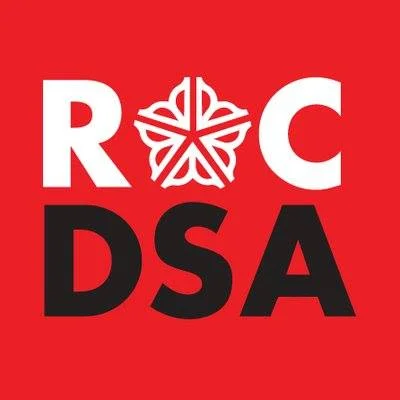
Rochester Red Star | March 2026 | (Issue 23)
Monthly Newsletter of the Rochester Chapter of Democratic Socialists of America
Welcome to the March issue of Rochester Red Star. In this issue, read remarks on the 10 year anniversary of ROC DSA, statements on Trump’s war on Iran, and essays on police overtime, agrarian justice, and fascist ideology. You’ll also find details on upcoming events, and coverage of chapter activities over the past month.
Interested in contributing? Send submissions to bit.ly/SubmitRedStar, or get involved with our Communications Committee. Reach out to steering@rocdsa.org and join DSA today!
The post Rochester Red Star | March 2026 | (Issue 23) first appeared on Rochester Red Star.


Denver DSA Stands against Imperialist War and with the Iranian People

The Denver Democratic Socialists of America (DDSA) echoes national DSA’s condemnation of the American-Israeli aggression against Iran. These unprovoked strikes have already killed at least 85 people at an elementary school for girls, the images of blood-stained backpacks mirroring the carnage and unrestrained slaughter of Gazan children we have all witnessed for the last two years. This is not coincidental – the brutality inflicted on Palestinians was never going to be limited to the land between the river and the sea, but was a step towards normalizing a more unmasked version of American imperialism around the world. From the unlawful abduction of Nicholas Maduro in Venezuela to the brutal blockade against the Cuban people, from Palestine to Iran, we are witnessing a dying empire lashing out in desperate attempts to reinforce its might around the world, for the benefit of a ruling class and no one else.
This is a time for radicalization, organizing and action. While our unhoused neighbors suffer on Denver’s streets, our immigrant neighbors fear ICE raids and the working class struggles more than ever, there is always money for another imperial war. The insatiable hunger of the military industrial complex means that our ruling class will never address the needs of the people for health care, housing and child care. The oppression and carnage waged abroad in our names will turn into increased surveillance, incarceration and political targeting at home. We condemn the Trump administration for their arrogant, reckless aggression and also condemn the cowardice and tacit support for war against Iran from Democratic Party leadership, who have demonstrated that they are beholden to the interest of their donor class over the needs of working people.
DDSA mourns the lives lost in the American-Israeli attacks and demands a cessation of hostilities against Iran, a withdrawal of military assets from the Persian Gulf and the region, an end to unilateral coercive measures against Iran, and a return to diplomacy on the part of the United States. We call on the people of Denver to organize and participate in mass mobilizations against the attacks on Iran, contact their representatives in Congress and demand that they vote for the Iran War Powers Resolution, and join Denver DSA and its Internationalism Committee as we continue to struggle against American imperialism in West Asia and beyond.
No to imperialist war, yes to the sovereignty of the Iranian people! No war but class war!
Click here to contact your representative: NO WAR WITH IRAN! Support the War Powers Resolution!

